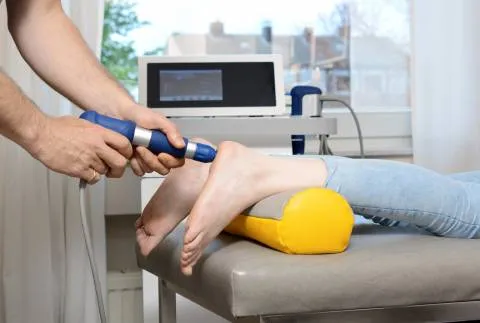How ED Doctors Diagnose Erectile Dysfunction: Tests and Procedures

Erectile dysfunction (ED) is a common condition that affects many men, especially as they age. Proper diagnosis is essential to determine the underlying cause and to develop an effective treatment plan. If you suspect you have ED, understanding the diagnostic process can help you prepare for your visit to the doctor. Let’s explore the tests and procedures that doctors use to diagnose ED.
Initial Consultation: Medical and Sexual History
What to Expect During Your First Visit
- Medical History: The doctor will start by taking a detailed medical history. This includes asking about your overall health, any chronic conditions (such as diabetes or heart disease), medications you are taking, and lifestyle factors like smoking and alcohol use.
- Sexual History: Expect questions about your sexual history. The doctor will inquire about the frequency and quality of your erections, your libido, any difficulties with ejaculation, and the onset and duration of your symptoms.
Why It Matters: A thorough medical and sexual history helps the doctor identify potential physical or psychological causes of ED. It also provides clues about any risk factors or underlying health conditions that may contribute to the problem.
Physical Examination
What the Doctor Will Check
- Genital Examination: The doctor will perform a physical examination, focusing on the penis and testicles to check for any obvious abnormalities or signs of trauma.
- Pulse Check: They will check the pulses in your legs to determine if there is any indication of poor blood flow, which could affect erectile function.
- Blood Pressure and Heart Rate: Monitoring these can help identify cardiovascular issues that might be contributing to ED.
Why It Matters: The physical exam helps rule out anatomical causes of ED and provides additional information about your overall health.
Blood Tests and Lab Work
Common Blood Tests for ED Diagnosis
- Hormone Levels: The doctor will likely order blood tests to check your testosterone levels, as low testosterone can contribute to ED.
- Blood Sugar: Tests for diabetes, including fasting blood glucose and HbA1c, are common since diabetes is a significant risk factor for ED.
- Lipid Profile: High cholesterol levels can lead to atherosclerosis, which affects blood flow and can cause ED.
- Kidney and Liver Function: These tests help rule out other potential underlying health issues.
Why It Matters: Blood tests provide valuable information about your hormone levels and overall health, helping to identify or rule out medical conditions that may cause or contribute to ED.
Nocturnal Penile Tumescence (NPT) Test
Understanding the NPT Test
- What It Is: The NPT test involves wearing a device around the penis while you sleep to monitor erections that occur during the night.
- How It Works: Normal nocturnal erections indicate that the physical structures necessary for an erection are functioning correctly, suggesting a psychological cause of ED. Lack of nocturnal erections may indicate a physical cause.
Why It Matters: The NPT test helps differentiate between physical and psychological causes of ED, guiding the doctor toward the appropriate treatment.
Ultrasound and Imaging Studies
Using Ultrasound to Assess Blood Flow
- Doppler Ultrasound: This imaging test uses sound waves to visualize blood flow in the penis. It helps identify issues with blood flow, such as blockages or leaks.
- Injection Test: Sometimes, the ultrasound is combined with an injection of a medication that induces an erection, allowing the doctor to assess blood flow more accurately.
Why It Matters: Ultrasound provides detailed information about blood flow, helping to diagnose vascular issues that can cause ED.
Psychological Evaluation
Assessing Mental Health Factors
- Questionnaires and Interviews: The doctor may use standardized questionnaires and conduct interviews to assess for depression, anxiety, stress, or relationship issues that might contribute to ED.
- Referrals: In some cases, the doctor might refer you to a mental health professional for further evaluation and treatment.
Why It Matters: Psychological factors play a significant role in erectile function. Addressing mental health issues can be crucial for successful treatment.
Specialized Tests
Additional Tests for Complex Cases
- Neurological Tests: If there are signs of nerve damage, the doctor may order tests to assess nerve function.
- Penile Biopsy: In rare cases, a biopsy may be performed to check for abnormalities in penile tissue.
Why It Matters: These specialized tests are used to diagnose complex cases of ED, ensuring a comprehensive understanding of the condition.
Conclusion: Comprehensive Approach to ED Diagnosis
Diagnosing erectile dysfunction involves a combination of medical history, physical examination, blood tests, and specialized diagnostic procedures. This comprehensive approach helps doctors identify the underlying cause of ED and develop an effective treatment plan.
For expert care in diagnosing and treating erectile dysfunction, visit Urology Specialists of Milford. As the leading ED Doctor in Milford, MA, they offer comprehensive tests and procedures to address your needs.
Are you experiencing symptoms of ED? Share your concerns with your doctor and discuss the best diagnostic approach to determine the cause and find the right treatment for you.









